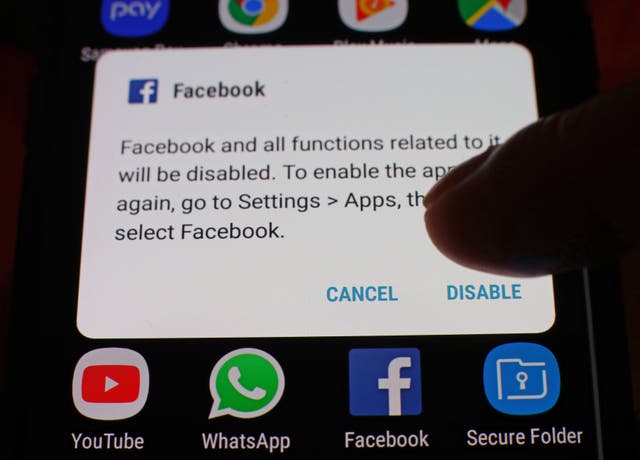
Giving up Facebook can reduce levels of a key hormone related to stress, according to new research.
The team – led by the University of Queensland in Australia – found that among a small sample group of 138 participants, taking a temporary break from the network was shown to decrease cortisol levels.
But those abstaining from using Facebook also reported a lower sense of wellbeing.
The participants were divided into two groups. The first group was instructed to stay off Facebook for five days, while the other group continued to use the site as normal.
Dr Eric Vanman, a senior lecturer in the School of Psychology at the University of Queensland, said: “Taking a Facebook break for just five days reduced a person’s level of the stress hormone cortisol.

“However, while participants in our study showed an improvement in physiological stress by giving up Facebook, they also reported lower feelings of wellbeing.
“People said they felt more unsatisfied with their life, and were looking forward to resuming their Facebook activity.”
To test their stress levels, the two groups were asked to provide saliva samples at the beginning and end of the study to measure changes in their cortisol levels.
The team found that while abstaining from Facebook was shown to reduce cortisol levels, people’s own ratings of their stress did not change.
According to Dr Vanman, this is “perhaps because they weren’t aware their stress had gone down”.

Researchers say the results indicate people prefer taking temporary breaks from Facebook rather than deleting their account completely.
Dr Vanman said: “Facebook has become an essential social tool for millions of users and it obviously provides many benefits.
“Yet, because it conveys so much social information about a large network of people, it can also be taxing.
“It seems that people take a break because they’re too stressed, but return to Facebook whenever they feel unhappy because they have been cut off from their friends.
“It then becomes stressful again after a while, so they take another break. And so on.”
The research is published in the Journal of Social Psychology.